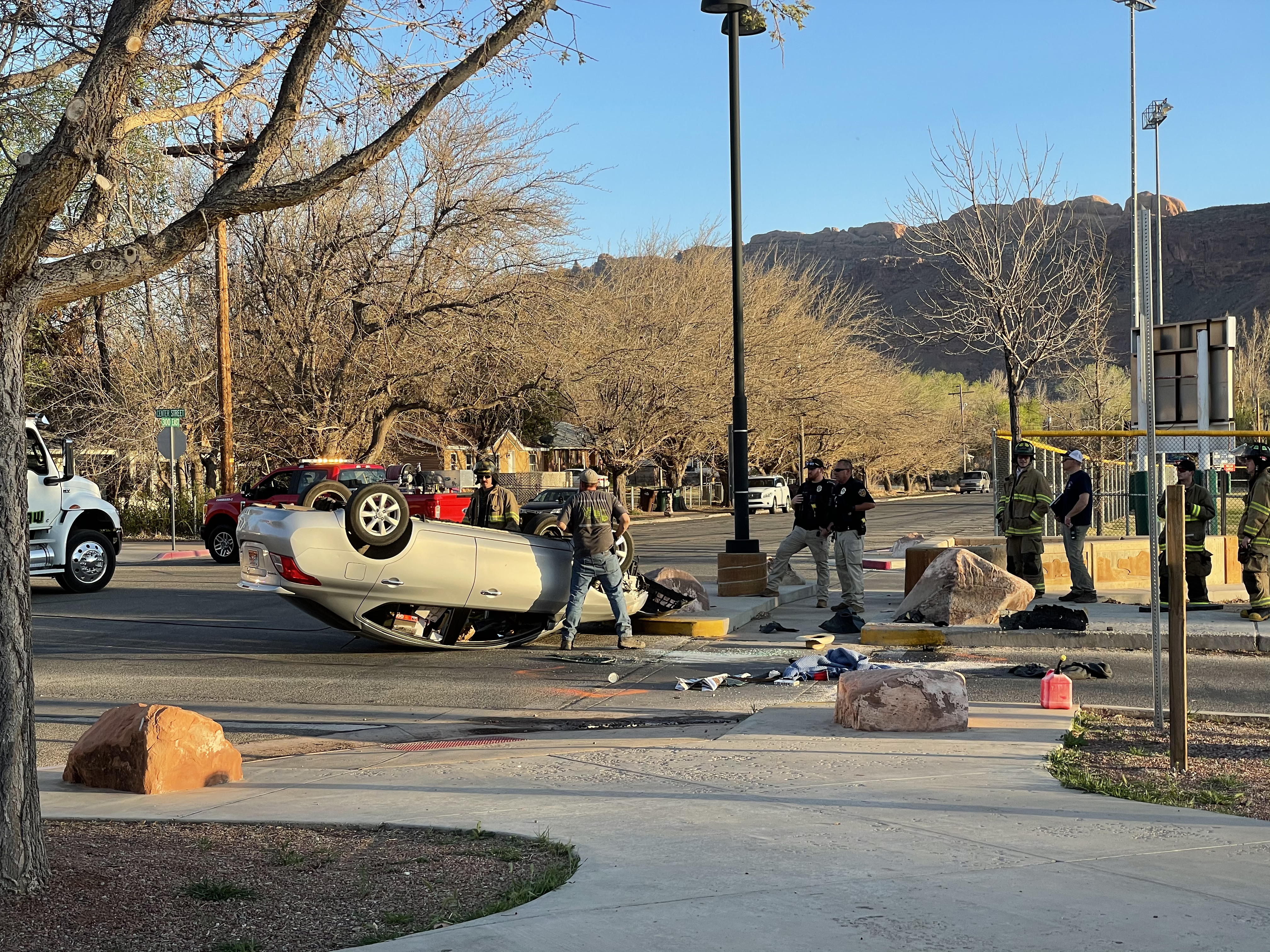They’re just giving out the vaccine at this point; rollover near the library
The Southeast Utah Department of Health and Nomi Health are hosting a vaccination party at Ken’s Lake on Thursday. They’ll be giving the one-shot, Johnson & Johnson vaccine — no need for a second shot or appointment.
You have to make a reservation beforehand if you want it. The available times are between 10 a.m. and 7 p.m. Once you get the shot, you’ll be fully vaccinated two weeks hence — before the end of April.
Get shot.
Vaccinated people can continue taking COVID-19 tests.
If you were worried that getting a vaccine for COVID-19 would disqualify you from getting a swab stuck into your brain to test for live vaccine, fear no more.
COVID-19 nasal swabs still work on vaccinated people. If you want to get an antibody test for COVID-19, that is a different story.
Why antibody tests do not mesh with the vaccine
Antibody tests look for what the name suggests: The immune system mechanism that acts against COVID-19 in the case that you contract it.
However, the antibodies for which commercial antibody tests are searching may not be the same as the antibodies that your vaccine grant you.
Infectious-disease expert Rob Murphy explained as much to The Washington Post in February. He is the executive director of the Institute for Global Health and a professor of medicine and biomedical engineering at Northwestern University
On the other side of the coin: Testing positive for antibodies does not mean that you should forego a vaccine.
Murphy also told the Post that immunity granted by contracting the virus is a “mixed bag.” While some people who have contracted it kept their immunity, others did not.
The U.S. Centers for Disease Control and Prevention also advised against making decisions on vaccination based on antibody tests (also known as serology tests) and tests for current (also known as acute) coronavirus infections.
Viral testing to assess for acute SARS-CoV-2 infection or serologic testing to assess for prior infection is not recommended for the purposes of vaccine decision-making.
U.S. Centers for Disease Control and Prevention guidance reviewed March 5, 2021
Why nasal swab tests do mesh
Although antibody tests and the vaccine are not compatible. That is not the case with polymerase chain reaction tests, also known as PCR tests or antigen tests and known for typically involving nasal swabs.
Antigen tests are both for vaccinated and unvaccinated people. They look for active virus rather than evidence that the virus infected a person. Because the vaccines do not contain active virus, antigen tests are unaffected by vaccination.
None of the vaccines are 100% effective, though each of the three currently approved by the Food and Drug Administration has fully prevent hospitalization and death in clinical trials.
Because a vaccinated person still has a relatively small chance of contracting COVID-19, the Utah Department of Health advises that residents continue taking COVID-19 tests if they suspect they could be infected.
In Moab, as of late February, Moab Regional Hospital advised people who are fully vaccinated exit the asymptomatic testing program, if they were enrolled. That means two weeks after your final shot, it is recommended that you exit the program.
My guess is that the program is winding down because it’s a lot of labor on the part of the hospital that they are not doing for free but also is not easy. I asked Doug Caylor, who oversees the program on the hospital’s behalf.
How Utah feels about it
Here’s a very brief press release the department of health sent out today on this subject, titled “Testing Remains a Critical Component to Fighting COVID-19”:
The Utah Department of Health (UDOH) continues to offer free rapid antigen testing at many locations throughout the state of Utah. And that testing comes with a reminder about how important testing still is in this response.
Reasons to get tested.
- You have symptoms. If you do test positive, you should isolate. Stay home except to get medical care. Visit https://coronavirus.utah.gov/protect-yourself/ for more information.
- You’ve been in close contact with someone who tests positive.
- Some employers may require a negative test before you return to work.
- Many hospitals are again offering elective surgeries and you may need to be tested for COVID before you have the procedure.
- Travel restrictions are different in various parts of the world and you may need proof of a negative test before traveling.
- The pandemic isn’t over yet. In fact, now that new variants are circulating and some are even more transmissible, finding out if you’re positive and isolating can prevent you from exposing others.
Charla Haley, Public Information Officer for the Utah Department of Health on April 5, 2021
Rollover at the library

A rolled-over car at the intersection of Center Street and 300 East on Saturday evening, around 7:09 p.m. Carter Pape, licensed for exclusive use
A car rolled over next to the Center Street Ballpark and Grand County Library on Saturday. The initial dispatch suggested that there were multiple people trapped in the vehicle; a follow-up a minute later said there was only one trapped.
I asked the chief of Grand County EMS what happened and about injuries. I am waiting to hear back. My understanding for now is that nobody died.